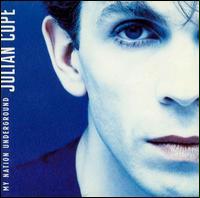
The Bangles are an American all-female pop rock band formed in Los Angeles, California, in 1981. The band recorded several singles that reached the U.S. top 10 during the 1980s, including "Walk Like an Egyptian" (1986), "Manic Monday" (1986), "Hazy Shade of Winter" (1987), "In Your Room" (1988), and "Eternal Flame" (1989).

Julian David Cope is an English musician and author. He was the singer and songwriter in Liverpool post-punk band the Teardrop Explodes and has followed a solo career since 1983 in addition to working on musical side projects such as Queen Elizabeth, Brain Donor and Black Sheep.

The Teardrop Explodes were an English post-punk/neo-psychedelic band formed in Liverpool in 1978. Best known for their Top Ten UK single "Reward", the group originated as a key band in the emerging Liverpool post-punk scene of the late 1970s. The group also launched the career of group frontman Julian Cope as well as that of keyboard player and co-manager David Balfe. Other members included early Smiths producer Troy Tate.

The Chills are a New Zealand rock band that formed in Dunedin in 1980. The band are fronted by founding mainstay singer-songwriter, guitarist Martin Phillipps. During the mid-1990s they were billed as Martin Phillipps & the Chills. Their top ten studio albums in their homeland are Submarine Bells (1990), Soft Bomb (1992), Snow Bound (2018) and Scatterbrain (2021). The Chills were a cult band in other parts of the world as one of the earliest proponents of the Dunedin sound. Their top 20 singles are "Pink Frost", "Doledrums", "I Love My Leather Jacket" (1986), "Heavenly Pop Hit" (1990) and "Male Monster from the Id" (1992).

Kilimanjaro is the debut album by the neo-psychedelic Liverpool band The Teardrop Explodes, released on 10 October 1980. It contains versions of the band's early singles "Sleeping Gas", "Bouncing Babies", "Treason" and "When I Dream"; reissues of the album also include their biggest hit, "Reward". The album also includes the song "Books", originally a song by Julian Cope's previous band, The Crucial Three; it was also recorded by Echo & the Bunnymen. In 2000, Q magazine placed Kilimanjaro at number 95 in its list of the "100 Greatest British Albums Ever".
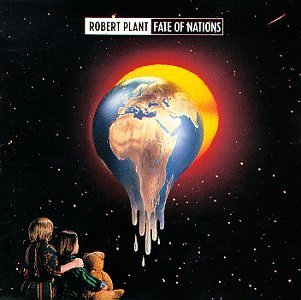
Fate of Nations is the sixth studio album by English singer Robert Plant, released 25 May 1993 on Es Paranza Records in North America and Fontana Records internationally. It features former Cutting Crew guitarist Kevin MacMichael on all songs and as well as being a backing vocalist. In addition, the album also features violinist Nigel Kennedy on one song. The song "I Believe" is a tribute to Plant's late son, Karac.
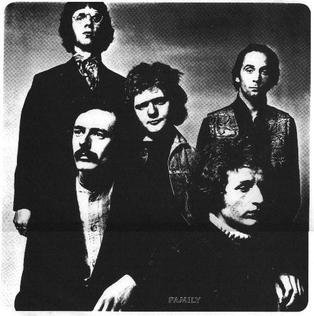
Family were an English rock band, active from late 1966 to October 1973, and again since 2013 for a series of live shows. Their style has been characterised as progressive rock, as their sound often explored other genres, incorporating elements of styles such as folk, psychedelia, acid rock, jazz fusion, and rock and roll. The band achieved recognition in the United Kingdom through their albums, club and concert tours, and appearances at festivals.

Peggy Suicide is the seventh album by Julian Cope. It is generally seen as the beginning of Cope's trademark sound and approach, and as a turning-point for Cope as a maturing artist.

Saint Julian is the third solo album by Julian Cope. It has a very strong pop sound, compared to other Cope releases, and spawned several of his best known tracks.

1927 are an Australian pop rock band formed in 1987 with James Barton on drums, Bill Frost on bass guitar, his brother Garry Frost on guitar and keyboards, and Eric Weideman on vocals, guitar and keyboards. They were popular in the late 1980s and early 1990s with major hit songs. Their multi-platinum number-one album, ...ish (1988) was followed by The Other Side (1990). At the ARIA Music Awards of 1989 they won two categories: Breakthrough Artist – Album for ...ish and Breakthrough Artist – Single for "That's When I Think of You". At the 1990 ceremony they won Best Video for "Compulsory Hero", which was directed by Geoff Barter. In 1992 the group released a third studio album, 1927, which reached the top 40; but they disbanded the following year. Weideman reformed 1927 in 2009 with a new lineup.

Variations is a classical and rock fusion album. The music was composed by Andrew Lloyd Webber and performed by his younger brother, the cellist Julian Lloyd Webber.

Jehovahkill is the eighth album by Julian Cope, released in 1992. After the critical success of Peggy Suicide (1991), Cope's idea for Jehovakill was to incorporate a krautrock attitude into his music. He began recording the album with musicians Rooster Cosby and Donald Ross Skinner, while co-producing it with the latter. The sessions yielded what Cope considered to be his most sonically experimental material to date. Originally titling the record Julian H. Cope, he sent an eleven track version to Island Records, who initially rejected its release, but gave Cope extra recording sessions for the album. During the extra sessions, in which six extra songs were recorded, the album became harder and was retitled Jehovahkill.
"I'm No Angel" is a rock song written by Tony Colton and Phil Palmer, and first recorded by Bill Medley of The Righteous Brothers on his 1982 solo album Right Here and Now. It gained greater fame when it was covered by American Southern rock band the Gregg Allman Band as the title track and lead single of their 1987 album I'm No Angel, released on Epic Records. The song was an unexpected hit, gaining heavy album-oriented rock airplay and reaching number one on Billboard's Album Rock Tracks chart.

20 Mothers is the twelfth solo album by Julian Cope, released in August 1995 by Echo. The album's sub-title is "Better to Light a Candle Than to Curse the Darkness".
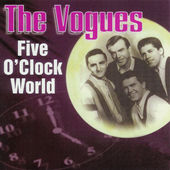
"Five O'Clock World" is a song written by Allen Reynolds and recorded by American vocal group The Vogues. It reached number 1 on WLS on 17 December 1965 and 7 January 1966, number 1 in Canada on the RPM singles chart on 10 January 1966, and number 4 in the U.S. on the Hot 100 on 15–22 January 1966 and is one of the Vogues' best-known hits, along with "You're the One".

Greatest Hits is a compilation album by the progressive rock band the Moody Blues, released in 1989. The band recorded new versions of "Isn't Life Strange" and "Question" with orchestration by the London Symphony Orchestra. The arrangements were overseen by Anne Dudley, who also produced the recordings with Justin Hayward and John Lodge. In 1990, only a year after its original release, the album was re-released as Legend of a Band: The Story of the Moody Blues with different artwork to coincide with the release of the home video documentary of the same name.
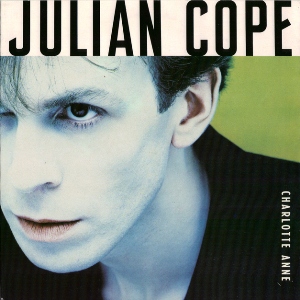
"Charlotte Anne" is a song by English singer Julian Cope released as the first single from his album My Nation Underground in 1988. The song was Cope's only chart-topping single on any U.S. chart, reaching number one on the Modern Rock Tracks chart in the United States for one week in early 1989.
Donald Skinner is a guitarist, songwriter and producer primarily known for his work with Julian Cope. Skinner is commonly known by the name Donald Ross Skinner with the addition of the middle name of Ross attributed to him by Cope after Glenn Ross Campbell, the pedal steel player from The Misunderstood. He is currently a guitarist for Love Amongst Ruin and DC Fontana.
Doll Skin was an American rock band from Phoenix, Arizona, United States. The original band members met at School of Rock Scottsdale. Their sound blended a blend of punk, metal, alternative, and pop. Doll Skin has been compared to bands ranging from The Donnas to The Go-Go's to The Runaways. They have received press coverage in Alternative Press, Phoenix New TimesBillboard, Rock Sound, Kerrang and Bravewords.
The Grifs were an American garage rock band from Charlotte, North Carolina, who were active in the 1960s. Their song, "Catch a Ride" became the number one hit in Charlotte and did well in markets around the Carolinas, and reached number one in Birmingham, Alabama. The group was able to secure airplay in northern markets, such as in Lansing, Michigan, where it reached number one, as well as in the Detroit area and parts of Canada. They were invited to open for the Amboy Dukes in Detroit, where they began to play frequent engagements in the Michigan region, and recorded their second single, "Keep Dreaming", in Detroit. Just when the Grifs prospects looked hopeful, drummer Roy Skinner departed and guitarist Mike Wingate received a draft notice to go to Vietnam. By early 1968, the group folded. Their work is now highly regarded by garage rock enthusiasts and several of their songs have appeared on compilations.
